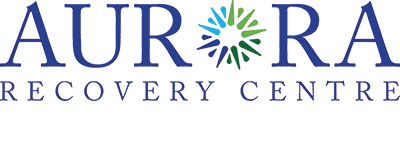Programs
At Aurora Recovery Centre we can help you grow in an ecosystem of understanding.
Codependency Treatment

What is codependency?
Defining codependency can be tricky. You might be tempted to dismiss a friend as codependent, meaning ‘clingy’, however, that’s not an apt description. A codependent relationship is often defined as ‘relationship addiction’ or a ‘circular relationship’ because one partner needs the other partner, who in turn, needs to be needed.
In fact, a codependent individual’s self-esteem and self-worth comes from sacrificing themselves for their loved one, who willingly accepts the sacrifices they make. Codependency is harmful because it impacts each person’s ability to have a healthy, mutually satisfying relationship and a more fulfilling life.
What causes codependency?
Codependency is often passed down from one generation to another because it’s learned by watching and imitating others who display the emotional and behavioural condition.
The term ‘codependent’ was originally used to describe someone living with or in a relationship with an individual suffering from a substance or alcohol abuse disorder. Today, it’s used to describe a relationship in which an individual is preoccupied and extremely dependent — emotionally, socially and/or physically — on another person to the detriment of their own needs, feelings and sense of self. Among codependents, parents and spouses are most common, but you can also experience codependency in friendships.
Diagnosis for codependency:
Because many of the traits for codependency overlap other mental illnesses, there’s currently no official screening or diagnosis for the condition. If you or a loved one show signs of codependency, talk to your doctor, who may refer you to a mental health specialist for testing and treatment.
Signs of codependency:
The following are some of the traits an individual who is codependent may demonstrate:
- Low self-esteem
- Excessive responsibility for or a need for control
- Anxiety or fear of being rejected, judged or abandoned
- Difficulty making decisions
- Poor boundaries with others and finding it hard to say ‘no’
- Trouble identifying or communicating thoughts, feelings or needs
- Chronic anger or strong, emotional reactions
- Extreme need for approval or recognition
- Denial of problems
- Lying
- Intimacy or relationship issues
Caretaking and codependency:
Performing acts of generosity and kindness can be fulfilling, particularly when a loved one is struggling or hurting. But there’s a dramatic difference between being caring and caregiving, which is a hallmark of codependent relationships. The latter enables a loved one’s irresponsible or destructive behaviour, helps them avoid uncomfortable consequences, and involves doing things that they can do themselves, often because of poor boundaries.
Poor boundaries with others:
Healthy boundaries encourage individuals with codependent traits to take care of themselves first and to care for loved ones in an appropriate and mutually beneficial way. By setting healthy boundaries, you learn to not compromise your own needs and happiness for someone else.
You also protect yourself from feeling guilty for someone else’s problems and taking their hurtful comments personally. Many individuals want to become ‘codependent no more’ so they’ll enjoy a better sense of independence and can maintain their own identity while still being connected to their partner.
Treatments for codependency:
Fortunately, you can learn to establish and maintain healthy boundaries by taking such steps as managing your worry and anxiety, increasing your self-care and detaching with love, a term that means setting healthy boundaries, allowing others to learn from their mistakes and focusing on what you can control and not on what you can’t.
Psychotherapy, often called ‘talk therapy,’ is considered the best treatment for codependency because it focuses on understanding behaviours and changing reactions to lead to healthier relationships. Some of the most successful interventions include:
- Cognitive behavioural therapy. This treatment can help you recognize and change negative, codependent thought and believe patterns so you can positively change your behaviours.
- Family therapy. This treatment targets dysfunctional and unhealthy dynamics between people in a codependent relationship and teaches them new ways of interacting.
- Group therapy. This treatment provides a supportive environment to share your feelings and learn communication and problem-solving skills with other individuals experiencing similar issues.

What if I am codependent?
Codependency recovery is possible. Aurora Recovery Centre’s dedicated team of professionals understands that each case is unique and will take the time to help you understand the causes and effects of your own codependency.
As you start to change your codependent behaviours and thoughts, you’ll learn how to establish healthy boundaries and take responsibility for your own happiness and well-being. We’ll help you identify and assertively express your needs and feelings, practise self-care and self-compassion and pursue your own interests. As you create a more balanced and fulfilling life, you’ll also improve your relationships with your loved ones.
GET HELP NOW
"*" indicates required fields
